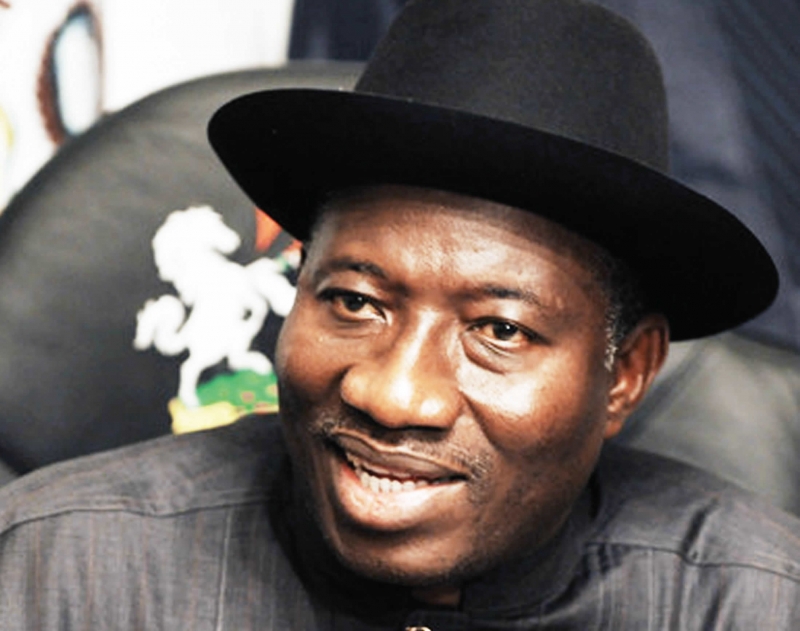Analysts say Mr. Sanusi’s suspension may scare off investors
Nigeria’s economic indices fell to negative, the lowest level in 15 years, as the Nigerian Stock market reacted violently to the suspension on Thursday of the Central Bank of Nigeria Governor, Lamido Sanusi.
Both the Minister of Finance, Ngozi Okonjo-Iweala, and the acting governor of CBN, Sarah Alade, moved to reassure Nigerians and the international community that there was no cause for alarm.
But since the announcement of Mr. Sanusi’s suspension by the Presidency, commodity prices and foreign exchange have nosedived to unprecedented low levels within hours, culminating in all economic indices in the system slipping to negative.
“Banking sector stocks went into negative since the announcement,” Chief Executive Officer, Trust Yield Securities Limited, Ola Yusuff, said on Friday. “Prices of other stocks are still down. Even Foreign Exchange went down. Maybe they would pick up next week.”
But Mrs. Okonjo-Iweala in her reaction had described the concerns in the market as nothing unusual, assuring players in the stock market of government’s resolve to pay attention to managing the economy.
She said government was committed to maintain macro-economic stability that would enable the administration continue the transformation of the various sectors of the economy.
“We will maintain tight fiscal policies,” the minister said. “We expect a continuation of the monetary policies that have been on at the Central Bank. We have confidence that this will pull through.”
In her maiden media briefing on Friday in Abuja, Mrs. Alade said that in spite of the change in the leadership at the CBN, its monetary policy direction and pursuit of its primary mandate of maintaining price and financial system stability would remain unchanged.
The value of the national currency, the naira, has continued to fluctuate, stirring speculations that government might be compelled to consider devaluing the currency.
But the acting CBN governor said her administration at the bank would continue to tighten its policies to ensure that the value of the naira remained stable, pointing out that there were no immediate plans to consider devaluation.
Assuring stakeholders in the financial sector, including the international community, of the commitment the CBN under her leadership to sustain its achievements, Mrs. Alade said this would be realised through appropriate deployment of monetary policy tools to ensure price and financial system stability.
The CBN, she said, would continue to intervene in the interbank foreign exchange market to ensure the stability of the exchange rate of the Naira and preserve the value of the domestic currency. The bank would remain committed to monetary and price stability and the smooth functioning of the foreign exchange market, she added.
“I wish to state unequivocally that the Nigerian economy has remained strong, sound and resilient over time,” Mrs. Alade said, pointing out that the domestic economy has remained robust, with a growth rate of 6.87 per cent in 2013.
Noting that the exchange rate has also remained generally stable, with the National Bureau of Statistics, NBS, data showing that inflation rate stood at 8 per cent in January 2014, while inflation rate has remained within single digit in the last 13 months.
With the current level of reserves at seven months of imports cover, as at end-December 2013, she said the CBN’s ability to intervene in the foreign exchange market was not in doubt.
Finance industry analysts have identified two major concerns in the market thrown up by the suspension of the CBN governor.
Apart from it signalling a threat to the autonomy of the Central Bank, observers are doubtful whether Mr. Sanusi’s successor, Godwin Emefiele, would continue with his policies in terms of defending the Naira, or allow easy money.
Mr. Yusuff said the suspension has created the impression to foreign investors that Nigeria is not a stable environment to do business if the head of the country’s financial sector regulator could be removed so easily by the President.
“The autonomy the Central Bank Governor is very important and key to investors and the market? If the foreign investors get hold of that impression, they may move out their investments from the market to other kore reliable destinations,” Mr. Yusuff said,
Afrinvest, an investment bank in Lagos, said the suspended CBN governor succeeded in establishing some form of confidence in the market as depicted in foreign exchange and price stability; coupled with the cleaning up and stabilization of the banking system within the last four years.
The bank said this helped preserve the value of investments in Nigeria, despite threats posed by the situation in the U.S. economy.
“As a consequence of President Goodluck Ebele Jonathan’s suspension of the Central Bank Governor, we anticipate a huge capital inflow reversal with monumental impact on the Nigerian Capital Market and the Currency. We also expect the stock market to assume a bearish trend in the near term, especially the banking stocks,” the bank said.
Afrinvest said Federal Government bond yield should also cross the 15 per cent mark in the near term, as investors re-price Nigeria’s country risk, while the Naira is expected to come under intense pressure, hovering above N175 per dollar at the BDC (Bureau De Change) market segment” the firm said.
The bank, however, said the legitimacy of the president’s action might be called to question as events unfold, pointing out that the appointment of an objective and independent Central Bank Governor remained a daunting task if the decision was sustained.
Noting that this would negatively impact investor’s perception of the country, driving the Corruption Perception Index, CPI, further south of the 144th rank (out of 175 countries) in 2013, Afrinvest called for the insulation of the CBN governorship position from political pressures.
“This will ensure the independence of the Central Bank and facilitate sustained confidence from the international investment community. We anticipate the administration will address this urgently to adequately nip these negative impacts in the bud,” the bank said.
A banking industry analyst, Nothando Ndebele, described Mr. Emefiele as very conservative and level headed banker with the qualities to make the difference.
Mr. Ndebele said Zenith Bank under Mr. Emefiele’s leadership has established itself as a leading, well-capitalised and stable bank with a high portion of asset sitting in Treasury bills and bonds.
“We believe he is likely to maintain a firm policy environment and would be inclined to tighten policy in the current environment of naira weakness,” Mr. Ndebele said.





